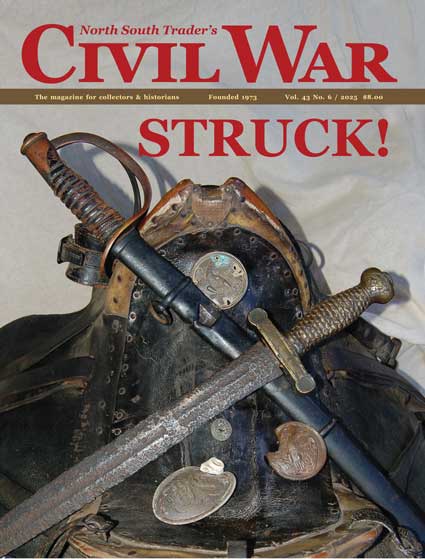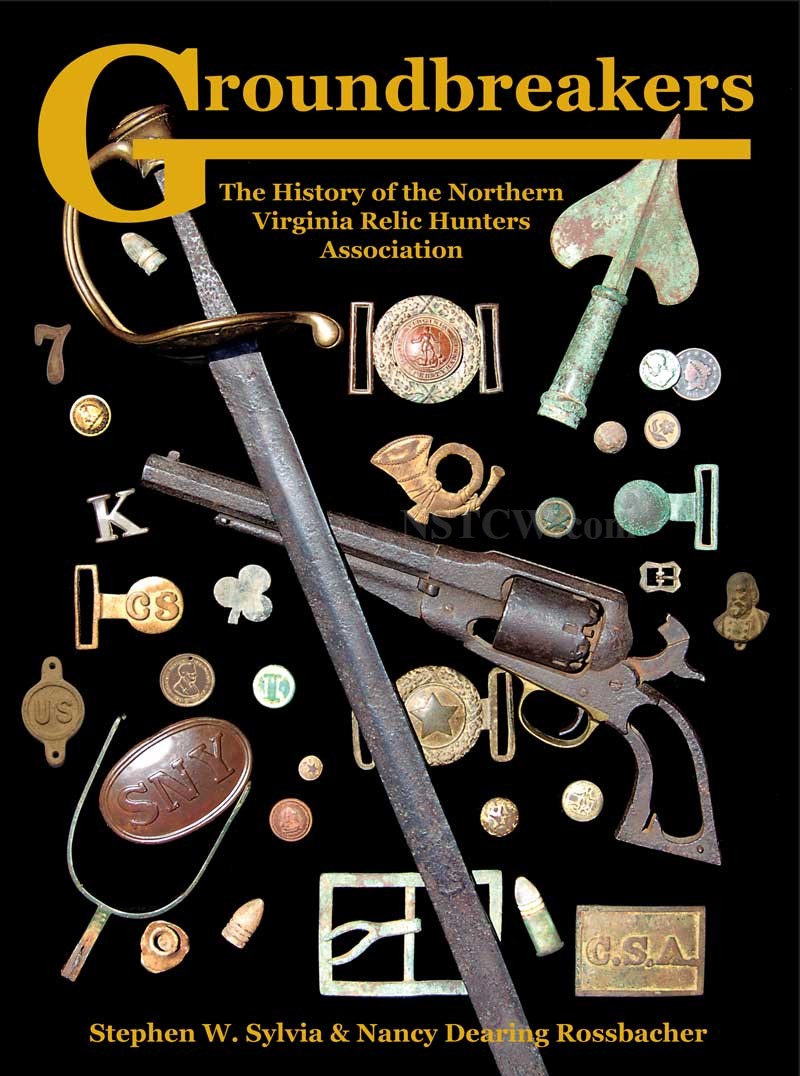|
From The Trenches Issue: 37-2 |
|
Of immutable truth and common languages Spoiler alert: Please flip to p. 46 and read Dan Binder's article before reading the rest of this. I'll wait. Take your time. [Getting coffee ... picking up e-mail ... flipping through House Beautiful and wondering if other people's houses are really that neat ...] Oh, you're back? In the course of the last many decades, we've shown some gruesome images. It's not only fitting but requisite. War is gory business, and you can't---or at least shouldn't---try to pretty it up. This is not House Beautiful, and some throw pillows and a crystal vase of dahlias, no matter how strategically placed, are not going to appreciably affect the ambience on a battlefield. I confess, though, that when I first saw the image that is the focus of Dan's fascinating treatise, I was concerned: Was it too gruesome for our readers? I think most of us have become somewhat inured to the period images of bloated bodies on battlefields, if for no other reason than the frequency with which we've seen them. But there's something so much more personal, so much more immediate and tragic about the sight of a single propped-up soldier who was never to return home. At least, not in an animate state. Ironic, that: It's somehow easier to wrap one's head around the notion of a battlefield strewn with dead than it is to confront the sight of an individual---a person, a soul---who was no longer among the quick. It also struck me how very far removed I am from editing House Beautiful. I doubt if any of their editors have ever had occasion to send a fact-check query to a medical pro to verify that a damaged corpse may decompose at a faster rate than an intact body. In my alternate reality of editing House Beautiful, I might be sending out opinion queries on "Is pink the new black?" or "Are hybrid tea roses passé?" But that is not this reality. In this one I spend a lot of time communing with the dead, which could be said to have at least one celebratory feature: They rarely talk back. Except that would be wildly inaccurate. They do. They don't do it as loudly as the living, but every affecting face gazing out from glass, every name that surfaces in old diaries, every uniform and accoutrement that survives is, in essence, a voice. And it's up to us to hear them. So let other publications ruminate about whether pink is the new black; in this one, black is always the new, old, and forever black, and even a vast number of throw pillows is not going to improve the contour of that history. Needless to say, my editorial decision on Dan's photograph was: Run it. It may be macabre to some, even repulsive to others. But it is also something that cannot and should not be denied: real. I'll add that when I mentioned the potential gross-out factor to Civil War collector/dealer Jim Stanley, he said, "Throw pillows are more nauseating to some of us than battle wounds." Point taken. I said, "The same language? Try putting a Down Mainer in Lubbock, Texas, and see if they aren't reduced to hand signals." Because our readers hail from all points of the American map and a few foreign ports, in a day's phone calls I might hear "Ah'd lahk tuh ruhnew mah subscription," "Yo, iz da noo issue out?," "Is this the editah?," and "Me, I don' know when my magazine runs out, chere." The above is not by way of parody. Anything but. I love regional accents---they not only lend flavor to speech, they imply pride in one's roots and a sense of belonging to one's community. But are we speaking the same language? Not always. Not long ago I was watching the riotously funny film "Ted," which is set in Boston. In response to his girlfriend uttering a four-letter word, Mark Wahlberg's character said, "That such a shop wood." Huh? I had to back up the scene three times before I finally understood what he was saying: "That's such a sharp word." You'd think I would've known that: I lived in Massachusetts for a few years, although I never learned to pahk the cah. (The publisher opines that I never learned to properly park one here either.) I imagine the speech differences were even stronger in the 1860s---even among men on the same side, what with the influx of European immigrants. Fremantle once said that several of the American-born Confederate commanders had English accents, while the rank and file's speech was all over the map. And I can imagine an Irish Yankee private's mystification at his Pennsylvania Dutch captain's command: "Red up to move. There's powder back yet, but the dippy ecks is all and it's soon making down wet."* Given the language barriers, I'd say it's a blessed miracle that soldiers weren't randomly and confusedly shooting at everyone in all directions. "Did he say far, fur, or fire?" "I don't know, but I'm pulling the trigger!" (See also: triggah.) And by the way, I don't talk funny. All y'all do. * Get ready to move out. We still have powder, but we're out of food provisions (soft-boiled eggs) and it's going to rain. |
| Past From The Trenches click an issue number to view |
| 43-6 |
| 43-5 |
| 43-4 |
| 43-3 |
| 43-2 |
| 42-3 |
| 42-3 |
| 42-3 |
| 42-3 |
| 42-3 |
| 41-6 |
| 41-5 |
| 41-1 |
| 40-5 |
| 40-4 |
| 40-3 |
| 40-1 |
| 39-6 |
| 39-5 |
| 39-4 |
| 39-3 |
| 39-2 |
| 39-1 |
| 38-3 |
| 38-2 |
| 38-1 |
| 37-6 |
| 37-5 |
| 37-4 |
| 37-3 |
| 37-1 |
| 36-9 |
| 36-6 |
| 36-5 |
| 36-4 |
| 36-3 |
| 36-2 |
| 36-1 |
| 35-6 |
| 35-5 |
| 35-4 |
| 35-3 |
| 35-2 |
| 35-1 |

